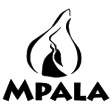Company Type: Sector in NGO
-

Program Manager Field Operations Senior Manager County Trainer Regional Coordinator (RC) Assistant Project Officer (APO) Project Officer (PO) Monitoring, Evaluation, and Learning (MEL) Assistant
THE ROLE The Program Manager oversees the effective implementation of the Lake Victoria Water Agroforestry Carbon Project using TREES Forest Garden Approach. This includes strategic coordination of the mobilization of Farmer Groups and Lead Farmers, ensuring proper training and technically supporting Project Officers and maintaining high standards in project execution, monitoring, and evaluation. S/HE coordinates…
-
Development Manager
Securing income and donor relationship management Cultivate new and strengthen existing relationships with a range of donors for Girls Not Brides – currently largely donor governments and private foundations. Lead the development of funding proposals, budgets, and MEL frameworks, working with other teams. Project manage restricted funding providing coordination between teams to ensure smooth donor relations, compliance…
-

People and Culture Manager
Position Overview- The People and Culture Manager will report to the COO and will drive Mpala’s people strategy, initiatives that build a performance-focused, innovative culture while advancing organizational goals and community values. Key Responsibilities: – Culture & Strategy-Leads Mpala’s people-focused initiatives, emphasizing innovation and inclusion. Develops internal communication and employee engagement strategies while championing diversity…
-

Senior Finance and Budget Assistant Midterm Review Consultant 10523 FSP
Responsibilities Budget: Acts as Certifying Officers under Financial Rule 110.4 to ensure that proposed obligations and expenditures are in accordance with approved budgets and established regulations and rules. Undertakes reviews, analyses and preparation of the medium-term plan and its revisions. Reviews, analyses and assists in the finalization of cost estimates and budget proposals, in terms…
-

Project Director
What You’ll Do Program Leadership & Management, including financial oversight, compliance, and management of a consortium of partners (if applicable). People Management Thought Leadership / Knowledge Management and Technical Leadership on the project. External Representation. Internal Representation and coordination. Fundraising (with non-project funds). Donor Liaison. Embody PSI’s values: Measurement, Pragmatism, Honesty, Trust, Collaboration, and Commitment.…
-

Monitoring, Evaluation and Learning Officer
As the MEL Officer you will focus on supporting external and internal evaluations by assisting with coordination of the evaluation process, from beginning to end. You will also support initiatives for learning and help to facilitate the uptake of learning and recommendations from evaluations and reviews into programme design and delivery. Working and collaborating with other members of the global MEL Team, you will contribute to a culture of…
-

Ministry Pilot
Samaritan’s Purse is seeking a Ministry Pilot to join our Mission Aviation Services team in Eldoret, Kenya. In East and Central Africa, roads are often poor or non-existent. Most often, the best and safest way to travel to critical locations is via aircraft. As a fixed-wing Ministry Pilot, you will support Samaritan’s Purse East Africa programs and projects…
-

Going Beyond Project Director
The Opportunity: DOT is seeking an experienced and dynamic professional to join our team as a Project Director. This is a full time role, reporting to DOT’s Chief Operating Ofcer. In a hands-on position, you will: Serve as the overall project lead and ensure the timely, effective, and agile implementation of the project according to…
-

Senior Fundraising Associate
About the Role Food4Education (F4E) is experiencing rapid growth, and we are on the lookout for a highly motivated and creative (Senior) Fundraising Associate to help fuel our expansion. This critical role will focus on managing grants, proposal writing, and ensuring compliance, all while being a key player in our Development and Impact team. We…
-

Director, Global Portfolio Management (Financial Institution Services)
What You’ll do Business Development Works collaboratively to develop and implement strategies and tactics related to securing a robust base of partnerships. Develops timely impact projections and provides complete, accurate internal reporting on opportunity pipelines and related activities. Leads development of funding proposals to secure resources for mission-critical projects and initiatives. Portfolio Operations Oversees strategic…